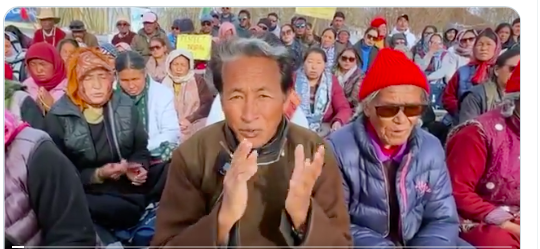CHR Desk| New Delhi
Climate change-induced environmental shifts are increasingly intertwined with violent conflicts across South Asia and Southeast Asia, a recent report by SIPRI Insights reveals. This connection underscores a complex interplay of social, economic, and climatic factors driving instability in the regions.
The report highlights how climate change exacerbates the root causes and dynamics of conflicts, particularly affecting vulnerable populations. Displacement triggered by environmental stressors such as floods and droughts intensifies migration and livelihood crises, amplifying existing socio-economic vulnerabilities.
“Increasingly, climate change is becoming a tool exploited by armed groups and elites to further aggravate social tensions and access resources,” notes the SIPRI report.
South Asia and Southeast Asia, home to 2.5 billion people, face a myriad of challenges stemming from climate change. These regions, characterized by diverse ethnic, religious, and political landscapes, struggle with socio-economic inequality and marginalization of minority groups. Rural communities, reliant on agriculture and fishing, bear the brunt of environmental changes, while rapid urbanization strains infrastructure and disaster preparedness.
The nexus between climate change and conflict manifests in various forms, including communal clashes, insurgencies, and state violence against civilians. Poor governance and socio-economic disparities exacerbate grievances, fueling ideological struggles and violence.
Despite the overlapping vulnerabilities to climate change and conflict in many countries, limited research has explored their interconnectedness in these regions. The lack of comprehensive studies impedes efforts to understand regional patterns and develop effective responses.
The report underscores the urgent need for empirical and theoretical research to elucidate the mechanisms linking climate change to violent conflict. It calls for a holistic approach encompassing economic, political, military, and environmental security sectors to address climate-related security risks effectively.
As humanitarian crises in regions like Iraq, Lake Chad, and Yemen underscore the escalating threat posed by climate-related security risks, the report warns of the imperative to deepen understanding and mitigate these risks. Failure to do so jeopardizes human, national, and international security, necessitating concerted efforts to address the complex interplay between climate change and conflict in South Asia and Southeast Asia.




